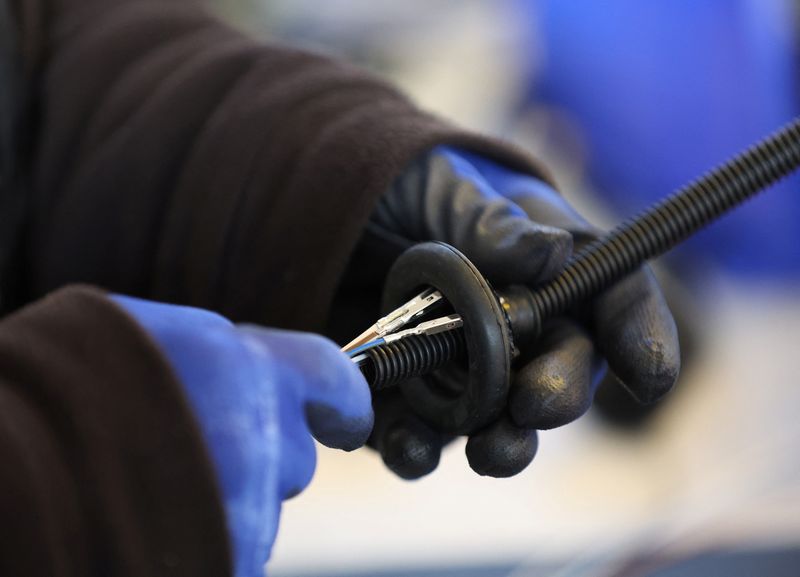By Andy Bruce
LONDON (Reuters) - The pace of decline in Britain's manufacturing sector steepened in June and optimism faded despite weakening price pressures, a survey showed on Monday.
The S&P Global/CIPS UK Manufacturing Purchasing Managers' Index (PMI) fell to 46.5 from 47.1 in May, its lowest reading this year and one of the weakest since the 2008-09 financial crisis, but revised up from an earlier preliminary "flash" reading of 46.2.
It marked an 11th consecutive month below the 50 threshold for growth, with business surveys and official data pointing to the services sector as the main source of growth in Britain's economy.
"Producers are being hit by weak domestic and export market conditions with clients showing a greater reluctance to commit to spending due to market uncertainty, increased competition and elevated costs," Rob Dobson, a director at S&P Global Market Intelligence, said.
Costs paid by factories for materials and energy fell by the most since February 2016, while prices charged by manufacturers dropped for the first time since April 2016.
The most recent official data showed that British factory output in April was 0.9% lower than a year earlier, the smallest annual fall since January 2022, the month before Russia invaded Ukraine and pushed up European natural gas prices.
The Bank of England is watching indicators of price pressures closely as it judges how many more interest rate hikes are needed to control Britain's rate of inflation, which in May was the joint-highest among major advanced economies, along with Italy's.
"Although some respite is being offered in the short term by reduced pressures on supply chains and costs, these remain a symptom of the current weakness of demand faced by the sector and are therefore unlikely to play a role in boosting production moving forward," Dobson said.

The PMI's gauge of future output fell to its lowest level this year, with employment contracting for a ninth month running.
A final PMI reading for the much larger services sector is due on Wednesday.